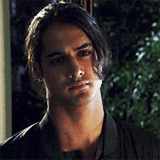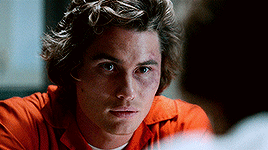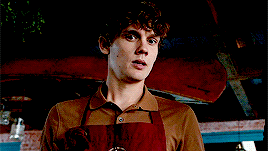Sparkling in the light thrown off by three blue giants in a trinary star system, the starship Antares had all of her sensors trained on a thoroughly unremarkable planetoid. Resembling a twenty-kilometer-long potato, the pot-marked lump of iron and carbon would not normally be worth a passing glance, let alone a detailed sensor sweep, but Antares had been sent there precisely to confirm how unremarkable it was. As part of the calibration process for the new Daren Subspace Telescope Array, which was still under construction back inside Federation space, the ship had been sent to check the validity and reliability of the massive new telescope’s readings. Even only partially complete, it was already able to observe a large swath of space between the edge of Federation territory and the Talvath Cluster itself. So far, the readings were lining up precisely: even at five lightyears away, the Daren Array had correctly detected the planetoid’s mass, composition, age, and velocity.

In addition to being a test of a new piece of equipment, it was the first task for the new crew of Antares since their arrival on the outskirts of the cluster. Originally commissioned in the late 2370s, Antares was newly-refit and ready for another several decades of front-line service. Her new bridge module shone in gleaming white and steel, contrasted by the deep purple leather upholstery on the seats. During this particular alpha shift, nearly every station was crewed, and Commander Margaret Pierce had the conn.
“Commander, all of the non-invasive tests we have been asked to perform have come back in the green. The Daren Array can be given its merit badge in space rock identification,” Lieutenant Commander Aaron Alejandro reported from the science station on the starboard side of the bridge. His Risian deputy, Lieutenant Sarcaryn, snickered from the station next to him. “The next task on the list is to close within five kilometers to extract a core sample.”


“Minimize the commentary, gentlemen,” the first officer admonished. Pierce would have happily preferred if Starfleet were a military organization if it meant that decorum could be maintained on her bridge. She also knew that she had to start with a tight grip on the senior staff to stand any chance of asserting herself during the critical process of socializing a new crew. “Helm, maintain our current attitude and close to five kilometers. Maneuvering thrusters only.”

“Ma’am… Sir…, we could save a significant amount of time if I used the impulse engines,” Lieutenant Vega replied from the helm. He had quickly corrected himself to Pierce’s preferred form of address; she resented that the gendered term ‘sir’ had become the default honorific, but she would be damned before she allowed herself to be segregated verbally because of her sex. The first officer stared at the lieutenant for just long enough to get him to back down. “But following protocol is also good. Maneuvering thrusters, aye,” the young man said.

Under thruster power, Antares closed the distance separating her from the planetoid in just about five minutes. Inching through space ensured that any unforeseen gravitational anomalies or debris would be given more than enough clearance. The last thing Pierce wanted was to charge in and scratch the paint on their first mission. She had a feeling that Captain Armstrong would likely have acquiesced to the suggestion of using the impulse engines if it meant getting this menial task out of the way more quickly, but she knew that part of her job was to make the captain look affable, indulgent, and charming, and that meant playing bad cop.
“Sir, I recommend a seven-degree roll to port to align our ventral tractor-beam generator with the target area,” Lieutenant Valia suggested from the operations station next to Vega. He was a no-nonsense rule follower, and Pierce already knew that the young man would become one of her favorite subordinates. “Particulate density is increasing at this range, so I am angling our navigational deflector to compensate.”

“Very well, Lieutenant Valia. Helm, execute a seven-degree roll,” Pierce replied.
“Aye.”
Relative to the length of the Intrepid-class ship, five kilometers was still quite far away from the planetoid, but they were practically touching in cosmic terms. The plan was simple: they would bore into the rock with one of the phaser arrays to create a meter-wide cylinder a hundred meters down into the planetoid before a second pass with the phasers at a much wider angle severed the sample at its root to allow the tractor beam to pull it out. It was far too destructive a procedure to perform on a life-sustaining world, but it was standard practice in resource prospecting. If this ball of rock happened to be home to a dilithium deposit or some other valuable resource that their sensors missed, this would help them find it.
“We’re in position,” Alejandro reported from science.
“Charging phasers,” Lieutenant Commander Lykaios reported from the tactical station directly behind Pierce’s seat. Pierce found him to be a kindred spirit, though in their short time serving together, she had found the Greek man to be even more prone to expecting the worst from the universe than she was. “Firing sequence and ready on your orders, commander.”

“Execute,” Pierce ordered.
On the viewscreen, Pierce watched as the thinnest beam one of their type-X phaser arrays could produce made contact with the surface of the planetoid, scoring a circle carefully and precisely. Once the initial incision was made, Lykaios used one of the saucer arrays at a much steeper angle to make a very wide circle to cut down into the rock and separate their core sample. For a crew as well-trained as they were, this was something they could do in their sleep.
“Firing sequence complete,” Lykaios reported.
“I’m not detecting any settling or unusual tectonic activity. We’re ready to proceed with the tractor beam,” Alejandro said.
“Ops, activate the tractor beam,” Pierce ordered.
A blue shimmer filled the viewscreen as the tractor beam locked on. Exactly as planned, a core of rock began to emerge from the hole that they’d cut with the phasers. Visually, it was the same drab grey as the surface material so far, giving no indication that there was anything hidden beneath the surface.
“I’m detecting something unusual,” Lieutenant Sarcaryn said at Science II.
“Clarify, lieutenant,” Pierce ordered.
“There was a brief burst of subspace interference on the lateral sensor array, but it’s gone now,” the young man reported. He turned his chair around to face the first officer. “Apologies, Commander.”
“If there’s an issue with the sensors, I want to know about it,” Pierce said, tapping her badge. “Bridge to Engineering. Run a level four diagnostic on the lateral sensor array,” she ordered.
“Commander, there was a brief burst of subspace activity picked up by the communications array. It could be ambient interference, but there’s nothing in this system that would normally cause that,” Lieutenant Burke reported from the communications station.

“Operations confirms. It coincided with the activation of our tractor beam, commander,” Lieutenant Valia said.
Commander Pierce tapped her fingers on the edge of the captain’s chair for a moment; there were lots of explanations for disturbances in subspace, ranging from the benign to the dangerous. In the split second she took to consider her options, the proximity alert began to sound.
“Romulan warbird decloaking 500 meters ahead, commander!” Lykaios reported from tactical.
“Red alert. Captain Armstrong to the bridge,” Pierce ordered, avoiding shouting by just the barest of margins. “Cancel that tractor beam,” she added; moments later, the blue light cut out, and the half-exposed column of rock collapsed against the planetoid’s surface.
The viewer switched just in time to catch the end of the green shimmering that revealed a Dhailkhina-class warbird, one of the symbols of the Tal Shiar and the so-called Romulan Free State. Her outspread wings were dotted with disruptor canons, and Pierce knew her hanger was full of what Starfleet was calling “Snakehead” fighters. Antares was a good 40 meters longer than her opponent, but she was significantly out-gunned and now at point-blank range. So much for their milk run.


 Bravo Fleet
Bravo Fleet













